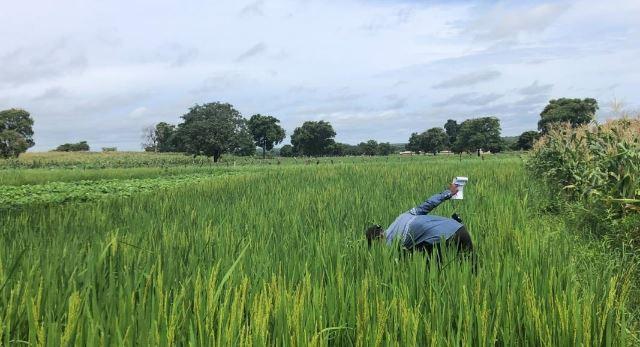- Home
- Worldwide
- CIRAD worldwide
- Projects
- MECAWAT Project
Mechanisation of crop production operations and organisation of agricultural labour for the agroecological transition - MECAWAT

Experimental site in Mbengue, Ivory Coast (cotton-growing area) © CIRAD
Issues
The implementation of the agroecological transition in sub-Saharan Africa accentuates the issue of labour on farms. A compromise needs to be found between mechanisation at the farm level and job creation at the territorial level. Indeed, locally adapted mechanisation can contribute to the creation of rural jobs, subject to the removal of specific constraints within the innovation ecosystem.
Description
Based on an analysis of the issues of mechanisation at the farm level and at the sectoral level, the MecaWAT project aims to formalise a framework of constraints and requirements for mechanisation in agroecological contexts.
The project will also conduct design and testing activities for mechanised equipment in plantain cropping systems (digging holes and weeding) and cotton systems (strip-tillage activities). The project will consider a variety of machines and tools, ranging from hand cultivation to the use of tractors, as well as animal traction and small motorised equipment, depending on the expectations, requirements, and constraints of stakeholders.
Finally, through a case study, the project will lead a collective reflection on the implementation of an ecosystem conducive to mechanisation adapted to agroecological transitions and on the need for collaboration between the stakeholders in this ecosystem. A roadmap on mechanisation for the agroecological transition will be produced for policy makers.
Expected results
- Analysing practices and understanding the organisation of labour and mechanisation at different levels to identify constraints to the implementation of mechanisation and agroecological systems, as well as requirements;
- Identifying innovations, co-designing and testing mechanised technical solutions that facilitate the implementation of agroecological systems;
- Contributing to the establishment of an ecosystem conducive to mechanisation to accompany the agroecological transition.
- Benin: Laboratoire de recherche sur l’innovation pour le développement agricole (LRIDA) ; Université nationale des sciences, technologies, ingénierie et mathématiques d’Abomey (UNSTIM) ;
- Ivory Coast: Centre national de recherches agronomiques (CNRA)























